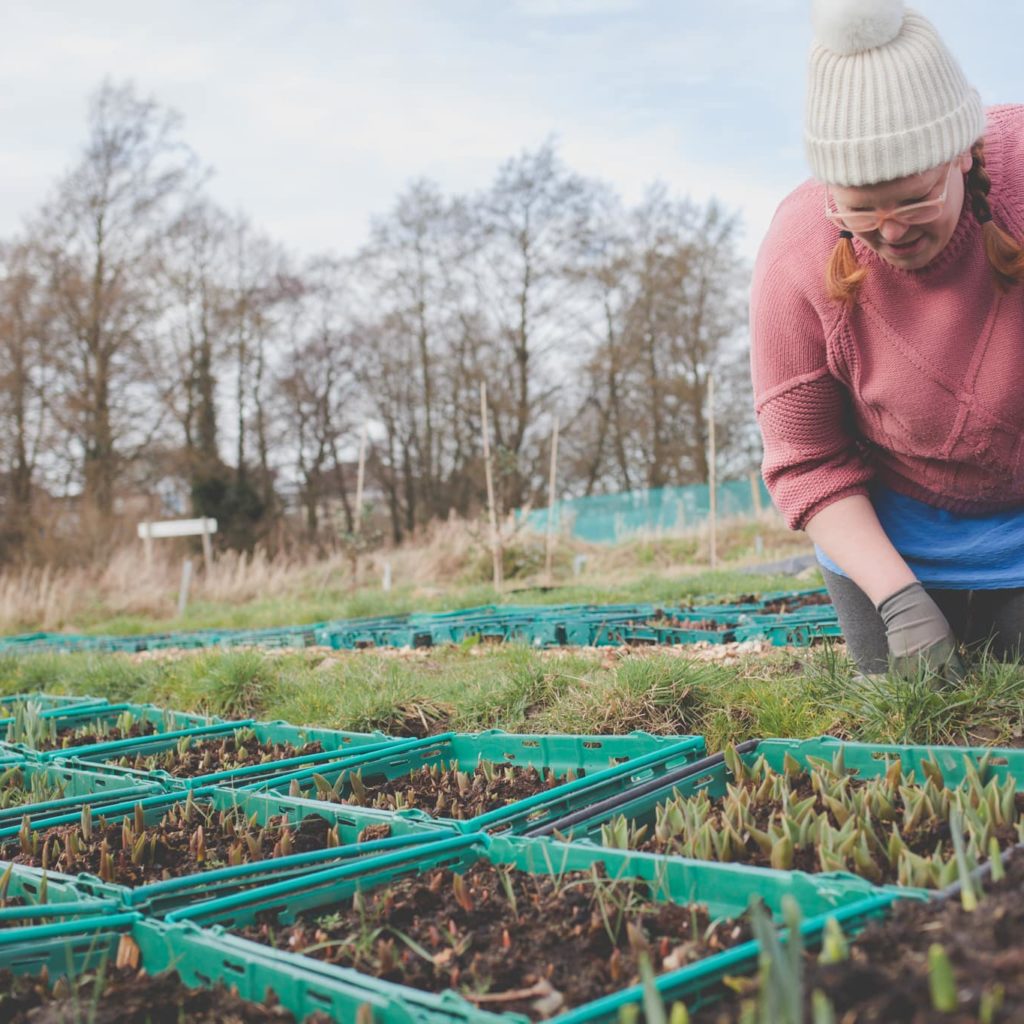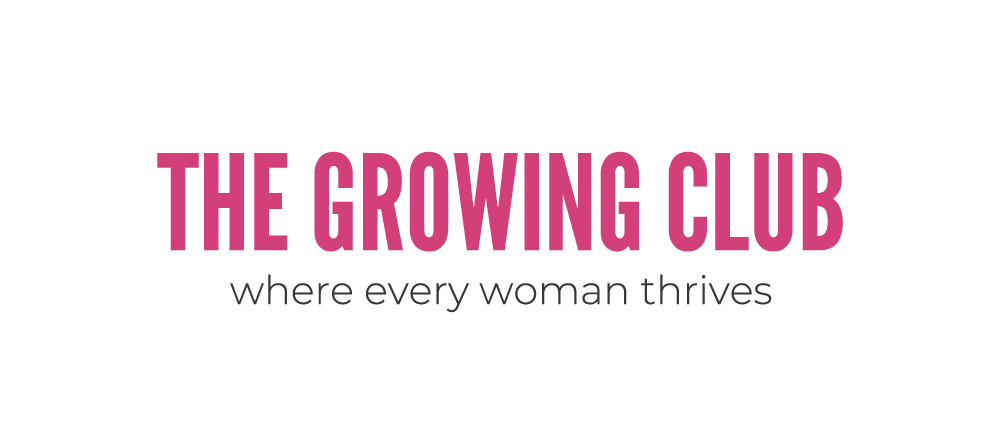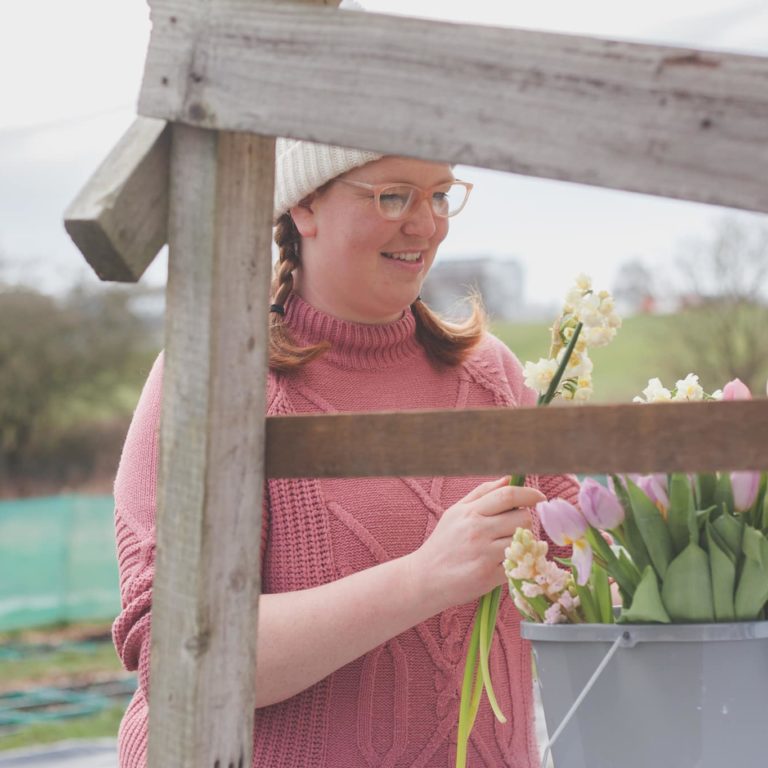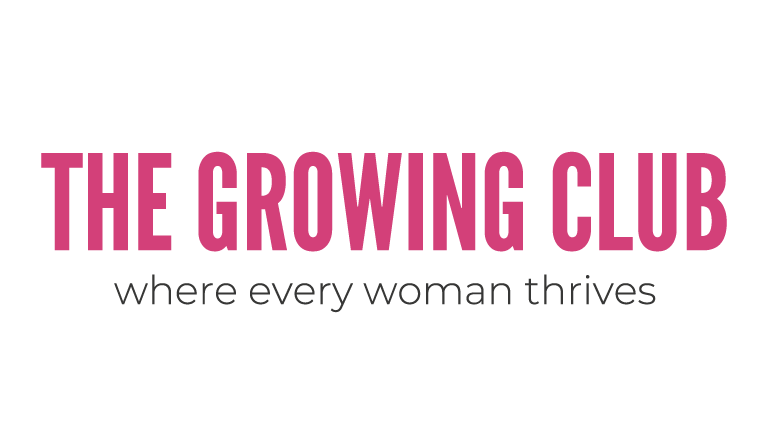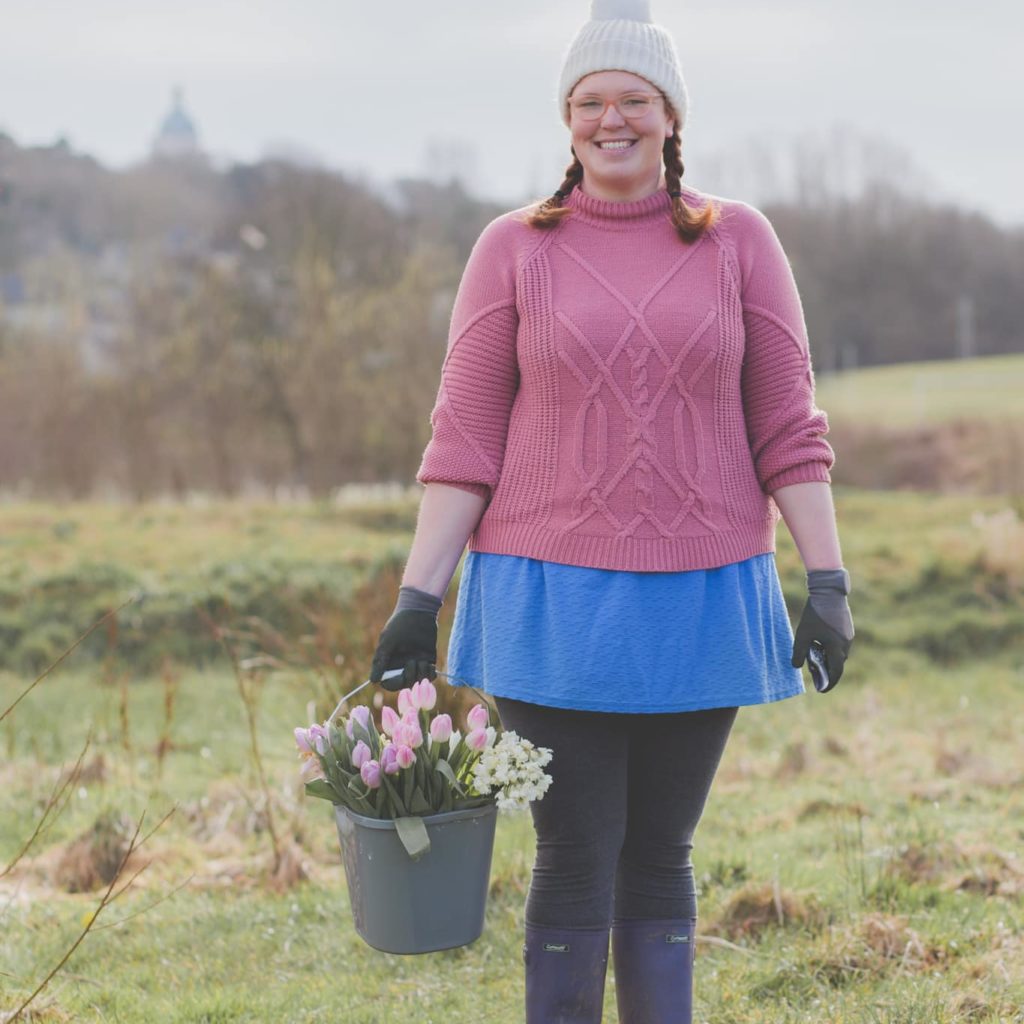
How did you find The Growing Club?
I’m a flower farmer in Lancaster and we do floristry as well. I came across Jane and The Growing Club through the Market Trading team at the Charter Market. They’re really good and send an email around once or twice a week with business support from other parts of the council and the local area, so that’s how I heard about The Growing Club. I got in touch with Jane and started the year-long Bloom and Grow course in November 2020. I’m finding it really helpful and it’s already starting to benefit my business.
I’m finding the social side of the course beneficial because farming can be quite isolating, even aside from the Coronavirus pandemic. That’s one of the reasons I wanted to join – to meet other women in business.
It was quite refreshing actually, to talk about self-care. Jane spoke about it in the very first session, and I was pleasantly surprised. Whenever I’m making business decisions now, I always think: does this help me as a person?
What were your goals when you started Bloom and Grow?
Working out how to focus on which streams of the business, become less isolated in business, sales and how to improve my sales technique. I’ve learned a lot so far, including other things I’ve never really thought about in business.
How did you get into your line of business?
I worked in university administration for a long time, which was very stressful and I became unwell. Me and my partner came up with a plan on how to change our lives. I’ve always been green-fingered – my parents are really talented gardeners. We’ve no back garden so we decided to put in for an allotment. It completely transformed our lives.
During the allotment time, we realised we were pretty good at growing flowers! I did some research and found out all about flower growing in the UK, and how up until about 30 years ago, flowers were grown right here. It was only in the 80s and 90s when Holland changed their farming practices and flooded the international market with cheap flowers, the British cut-flower farms just nose-dived and couldn’t compete. There’s been a really huge resurgence of small-scale flower growers like myself and my partner.
This was when we thought: we’re good at this, people want to use our flowers, so let’s change our life. I previously lived in Lancaster – over a decade ago – so I already knew I loved the place and knew the area well. We’d had enough of city life, living in big cities across the world. We were looking for somewhere in the countryside where there was good access to a town. Then everything fell into place. I contacted people until we found a suitable plot of land to rent. We’ve been growing cut flowers for nearly three years now.
Has Brexit impacted your business?
Buying British-grown flowers makes so much more sense – it’s the way forward. We don’t have any logistical problems with flower delivery. But with the new Brexit trading agreement, importers/exporters need plant passports. It’s a nightmare for logistics and flower businesses. However, it’s a great opportunity for British flower growers and I think we’ll see a massive comeback in this industry.
We’re working alongside Flowers from the Farm – a national collective to promote and help people to grow and sell cut flowers for Britain. They also educate on flowers and the environment, encouraging people to choose British cut flowers before imported blooms and inspiring supermarkets to use British-grown flowers.
We’ve got lots of plans over the next couple of years!
